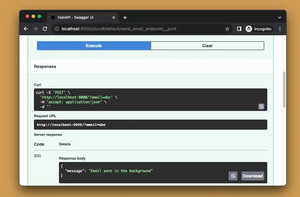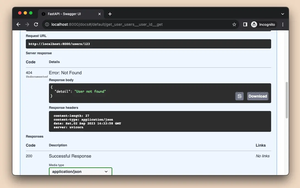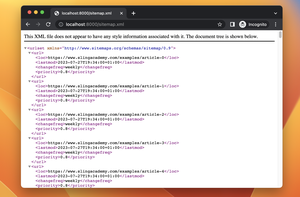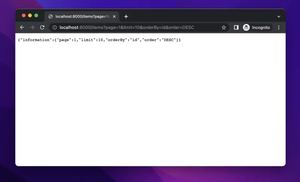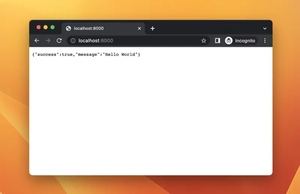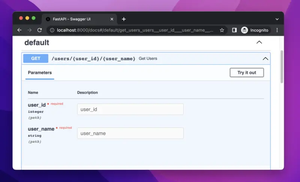The Error
When working with FastAPI, developers might encounter various errors, and one such common error is FastAPI Error: No module named ‘pydantic_core._pydantic_core’. This typically occurs due to issues with the installation of FastAPI or its dependencies. FastAPI uses Pydantic for data validation, and Pydantic itself depends on the pydantic_core module. If there’s an issue with the module’s presence or compatibility, errors during runtime are likely. Let’s explore solutions to resolve this error.
Solution 1: Ensure Correct Installation
At times, the installation of FastAPI and its dependencies might not have been completed properly, which could lead to missing modules or incorrect versions being installed.
- Activate your virtual environment.
source venv/bin/activate(on Unix) orvenv\Scripts\activate(on Windows) - Upgrade pip to ensure you can install the latest packages.
pip install --upgrade pip - Reinstall FastAPI and its dependencies.
pip install fastapi[all] --force-reinstall
Here’s a complete example with code:
#!/bin/bash
# Assuming you are on a Unix-like system
# Activate your virtual environment
source venv/bin/activate
# Upgrade pip
pip install --upgrade pip
# Reinstall FastAPI and its dependencies
pip install fastapi[all] --force-reinstallAdvantages: This solution ensures that you have all the correct and updated versions of dependencies installed.
Limitations: If the problem isn’t with the installation, this solution will not resolve the issue.
Solution 2: Install Missing Module Manually
If FastAPI was installed properly but the error persists, it might be necessary to install the missing pydantic_core module manually.
- Activate your virtual environment.
source venv/bin/activate(on Unix) orvenv\Scripts\activate(on Windows) - Install the
pydantic_coremodule explicitly.pip install pydantic-core
Here’s a complete code example:
#!/bin/bash
# Activate your virtual environment
source venv/bin/activate
# Install pydantic_core
pip install pydantic-coreAdvantages: This provides a targeted fix for just the missing pydantic_core module.
Limitations: There could be other dependency-related issues that this approach would not solve.
Solution 3: Check for Conflicting Dependencies
Conflicts between installed package versions may cause this error. Ensuring compatibility between FastAPI, Pydantic, and other related packages is crucial.
- Activate your virtual environment.
- Use
pip listto check installed package versions. - Look for version conflicts, considering FastAPI’s version compatibility requirements.
- Update any conflicting packages with
pip install --upgrade [package-name].
Here’s a complete code example:
# Activate your virtual environment
source venv/bin/activate # on Unix
# Check installed packages
pip list
# Upgrade conflicting package
pip install --upgrade [package-name]Advantages: This helps in identifying and resolving specific version conflicts among installed packages, ensuring better stability.
Limitations: Identifying the exact conflict might be time-consuming, and one might require in-depth knowledge of package dependencies.
Conclusion
The error No module named ‘pydantic_core._pydantic_core’ is often due to installation or compatibility issues with FastAPI and its dependencies. By following the suggested solutions, such as ensuring correct installation, manually installing missing modules, or checking for conflicting dependencies, developers can troubleshoot and fix this error. Always ensure that your environment is clean and up-to-date with the correct libraries to avoid such errors.
